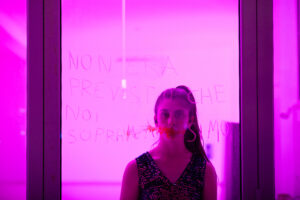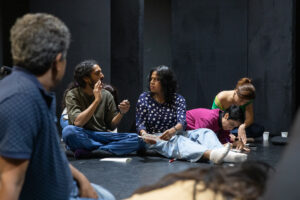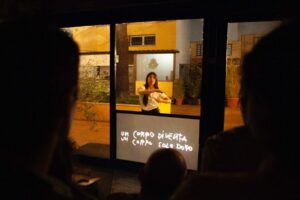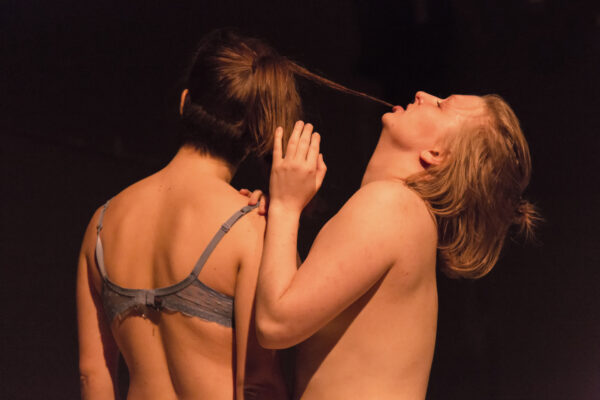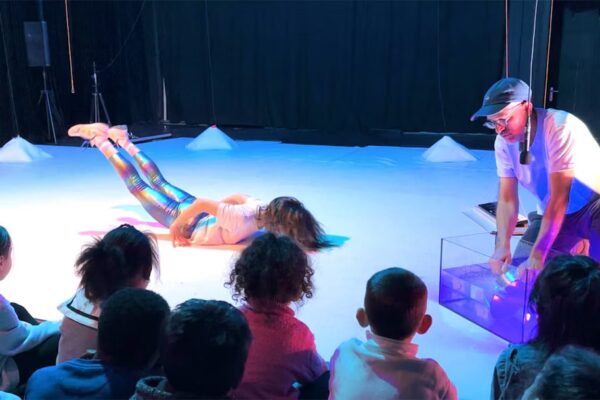Entrare e uscire dal festival Interazioni|Ctonia, così ci siamo guardati e abbiamo guardato
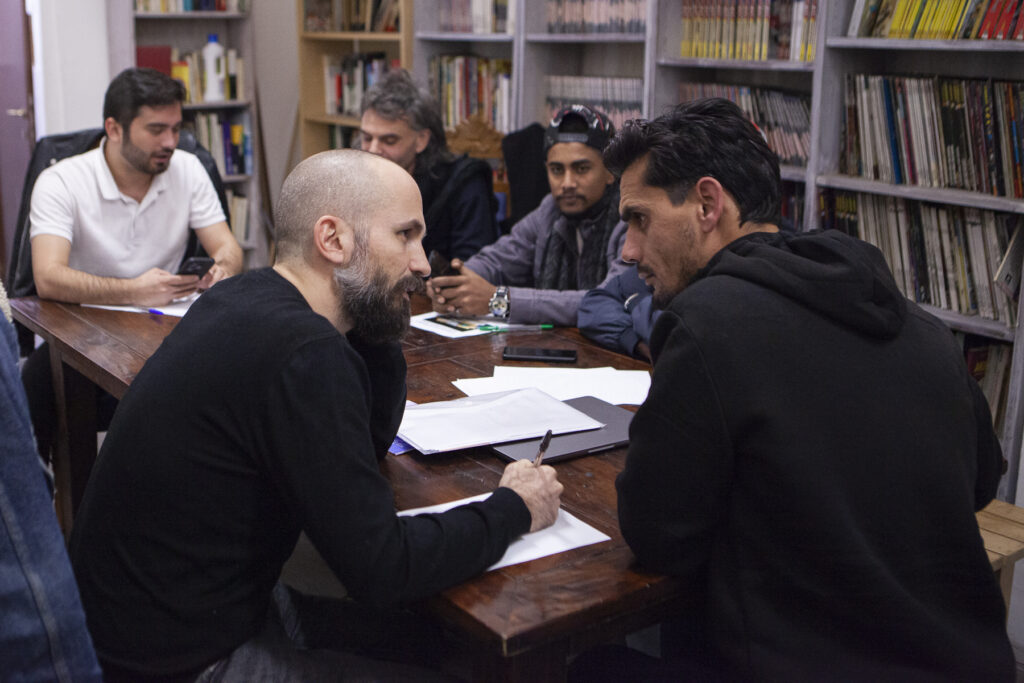
Goli: I used to think that in order to speak, we must have strong language and literature to be able to understand someone, but in this festival, I realized that apart from our language, we can talk with our body parts. I got to know body language. During a workshop (qui, il racconto dei laboratori – Nu triatu. Corpi cittadini nei workshop di Interazioni|Ctonia) we said our names, we introduced ourselves with a reaction, and in this game, it was interesting again that we tried to remember people’s movements and names. We would make a move without thinking and at that moment our subconscious mind would react for a moment and we would do it. For example, one of the girls showed a reaction by hugging herself, reaching out her hand and trying to save herself. I even think that she did not understand how she showed us the experience she had. And Abdul Rahman made a move similar to a magic move that he wanted to change something; and right after we were sitting, Abdul told us about himself.
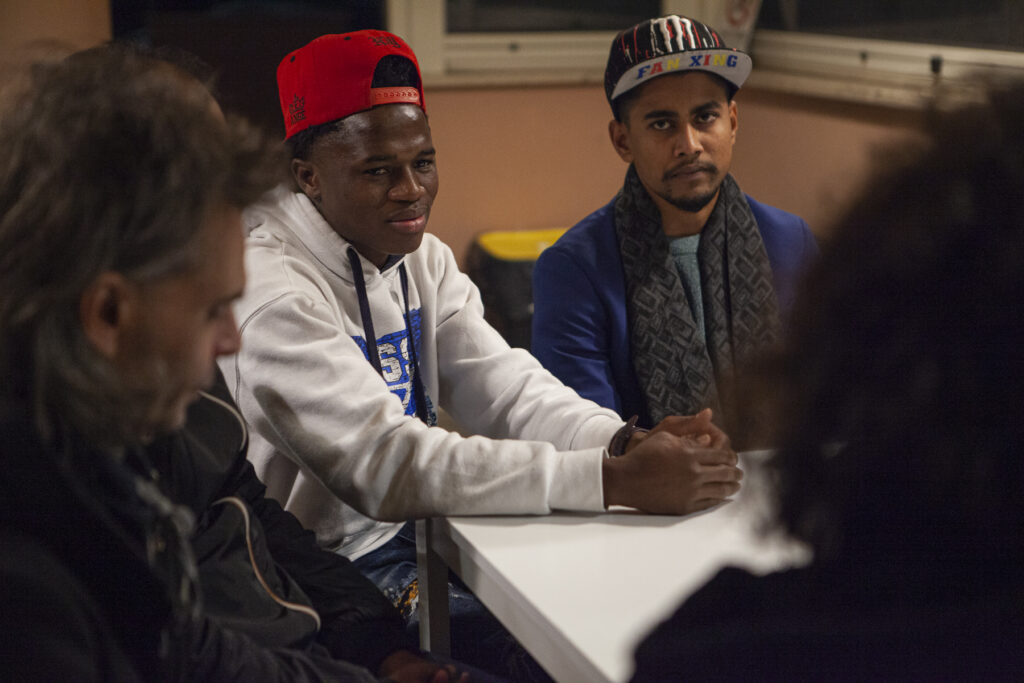
Abdul Rahman: avevo un sogno fin dall’infanzia. Fare fotografie e video. Avevo una piccola macchina fotografica in Bangladesh, l’avevo comprata di nascosto senza che la mia famiglia lo sapesse. Alla mia famiglia non piace la fotografia. Un giorno mio padre si è arrabbiato molto, quando ha vito la macchina fotografica nella nostra srtanza. Mi sono sentito molto male. Poi ho venduto la macchina fotografica e non ho potuto più comprarla. Ora ho un sogno, per quando avrò soldi per farlo: comprarne un’altra di buona qualità
Goli: And the move that Abdul Rahman made, he was trying to change the scene and get what he likes. And he sees something like a satellite in himself. And moving with him, he tried to get rid of negative energy. And in this festival (qui, e qui, il racconto di alcune performance) I realized that most movements can be played. With eye movements without speaking, our eyes connected, or when they danced together, our eyes connected until the depth of that person’s existence made you walk. And feel him, and understand him, and get something out of it, and I think we understand this language much more than speaking. We made a stronger connection with the eyes than the tongue. And the most important part was feeling the energy that spread between us. We were people who did not know each other, we were not from the same country, but we could easily absorb each other’s energy. We could feel the souls dancing with each other, and they flew freely from the prison called the body.
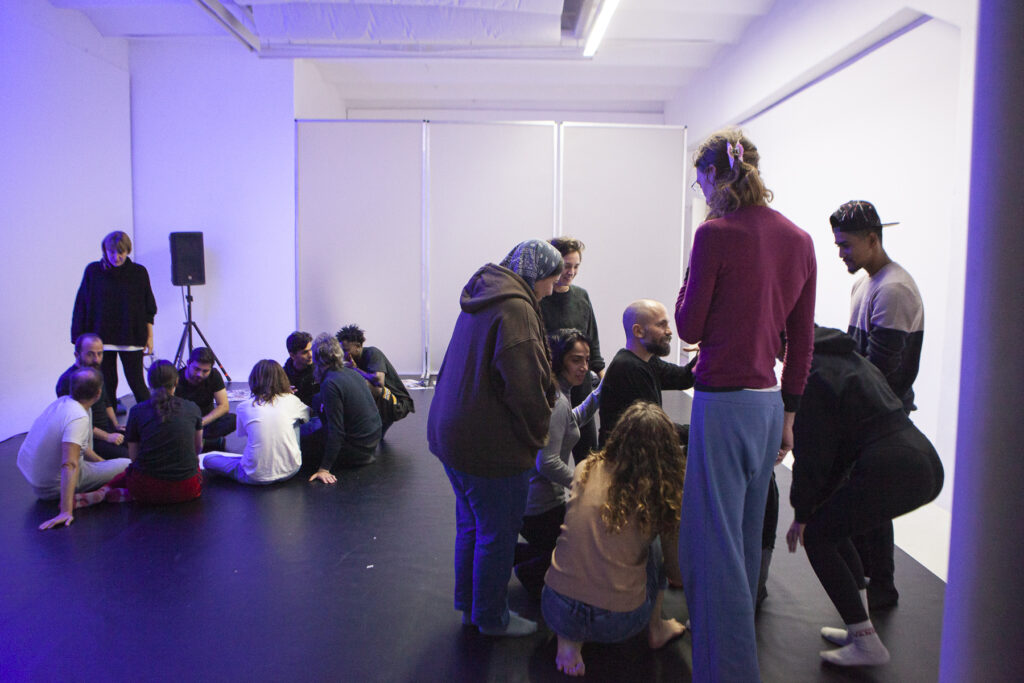
Luca: Abdul Rahman quel giorno, dopo aver raccontato della sua fotocamera, ha tirato fuori lo smartphone e ha iniziato riprenderci. Ci siamo fatte guardare. Poi, finito il festival, ci ha mandato questo video, molto semplice, montato con lo smartphone. La metà del video è soltanto un camminare, da Asinitas dove stavamo facendo riunione di redazione e dove ho conosciuto Abdul Rahman nella scuola di italiano, fino a Ostudio, dove avremmo partecipato ai laboratori e alle performance; per noi che ci siamo state dentro, quei due lunghi minuti di camminata serale sono il racconto di quanto sia presente il percorso che fa una comunità per entrare nello spazio performativo, di quanto possa sembrare immediato l’incontro e di quanto invece non lo sia. A me, sembra raccontare il “fade in” urbano di un festival, dai lampioni della città a quelle viola di Ostudio; di come un festival si possa innestare nello spazio urbano e di quanto, tutto quel camminare “verso”, necessiti di cura reciproca e accompagnamento.
La RE.M di Interazioni|Ctonia 2023

